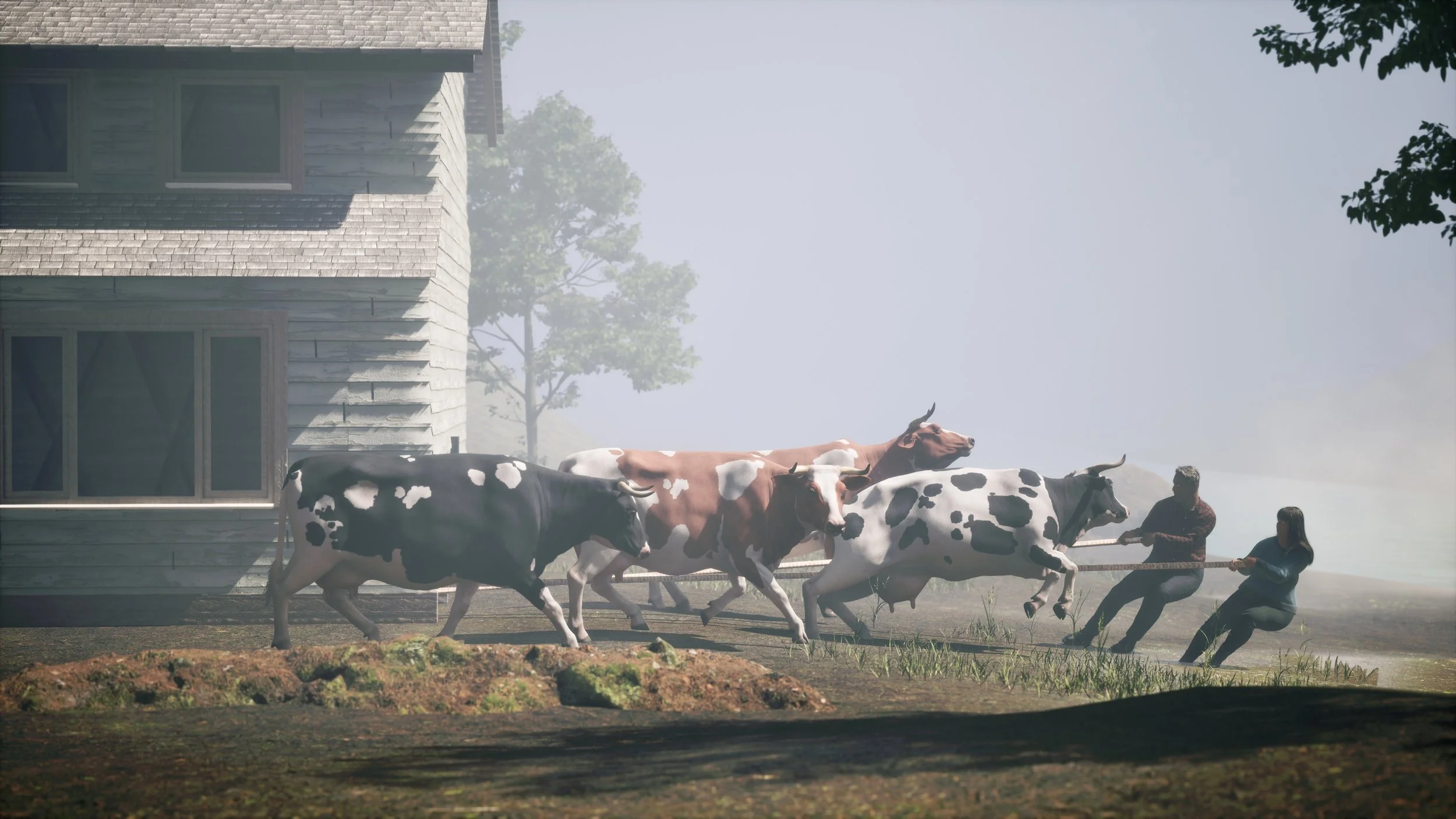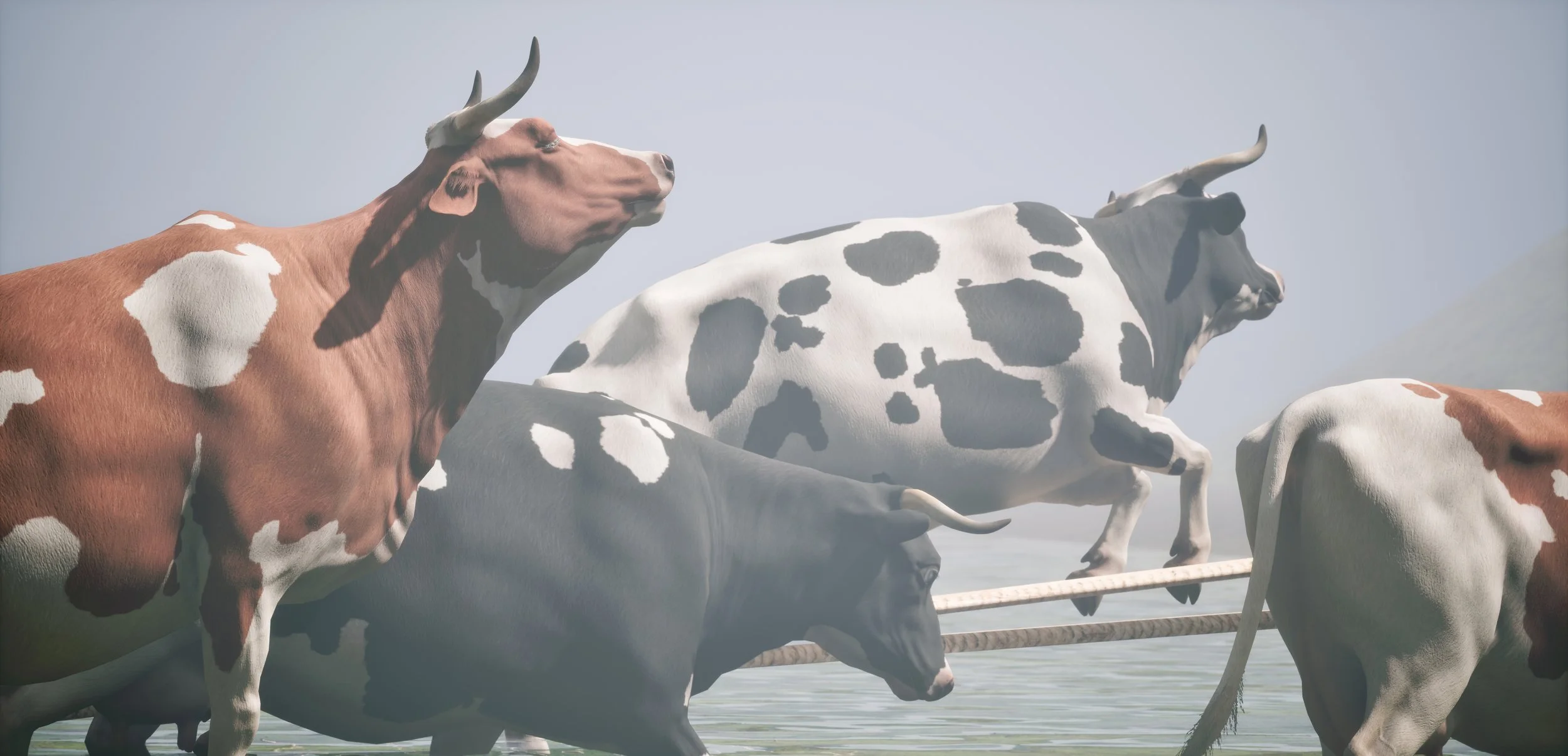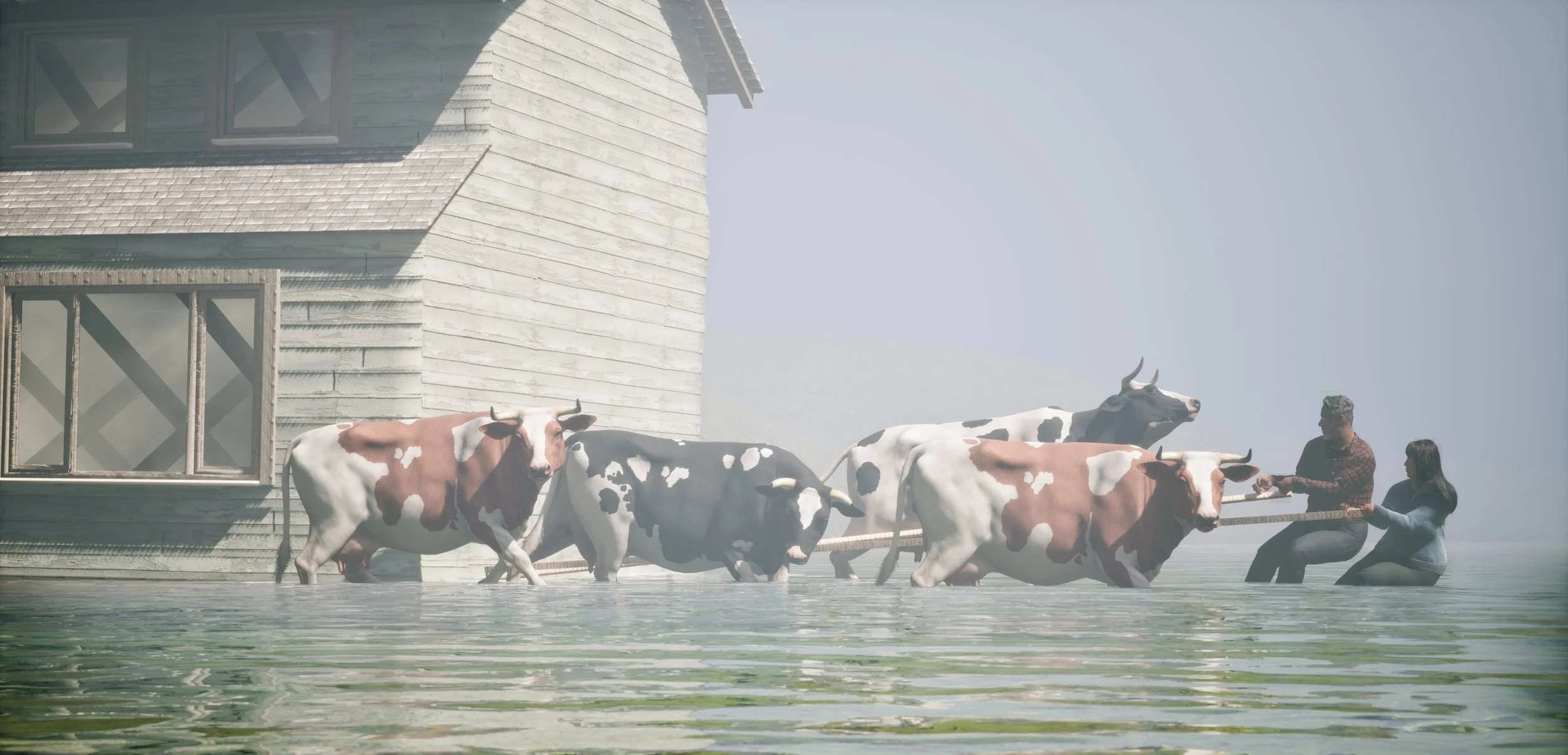Minga: A Digital Reenactment of Collective Cooperation
Project Director: Jose Sanchez
Minga is a local multiplayer digital simulation that reenacts the traditional House Pulling Minga ritual of Chiloé, Chile—a communal practice where community members come together to physically transport an entire house, embodying principles of mutual aid, cooperation, and cultural solidarity. This project learns from the local practice of the Minga, inviting players to navigate the challenges of collective action in real time.
Minga requires players to engage in synchronous cooperation to achieve a shared goal. Through real-time decision-making, communication, and strategic coordination, players must collectively maneuver a structure through a dynamic, physics-driven environment—testing their ability to work together within the constraints of limited information, shifting priorities, and emergent problem-solving.
The project is informed by Elinor Ostrom’s work on the governance of commons and Robert Axelrod’s game theory on the emergence of cooperation, particularly in relation to the iterated Prisoner’s Dilemma. By reenacting a cultural tradition within a digital medium, Minga serves both as a tool for cultural preservation and as a social experiment—offering insights into the mechanics of collective action and the role of digital platforms in fostering cooperation.
Minga explores the tensions and potentials of collaborative engagement that are digitally mediated, asking how communal rituals might inform the way we build cooperative frameworks. Through its fusion of cultural heritage, interactive gameplay, and physical engagement, the project highlights the enduring relevance of collective labor and reciprocity, positioning video games as powerful spaces for both reflection and participation in the dynamics of communal life.
Credits:
Directed and Developed by Jose Sanchez
Research assistance by Qilmeg Doudatcz, Axel Olsen, John Spraberry & Anuriti Singh
Support:
University of Michigan Research and Creative Practice Grant
University of Michigan TV Lab Grant





